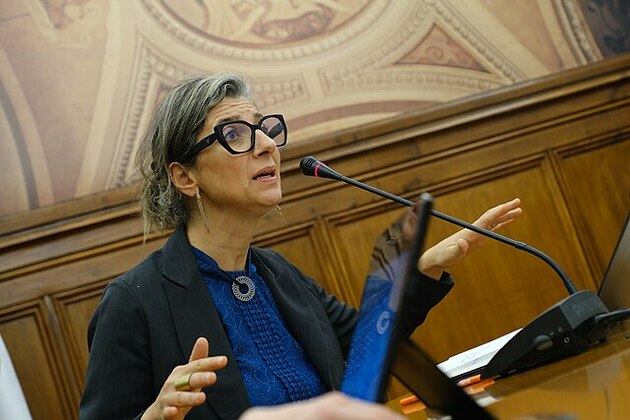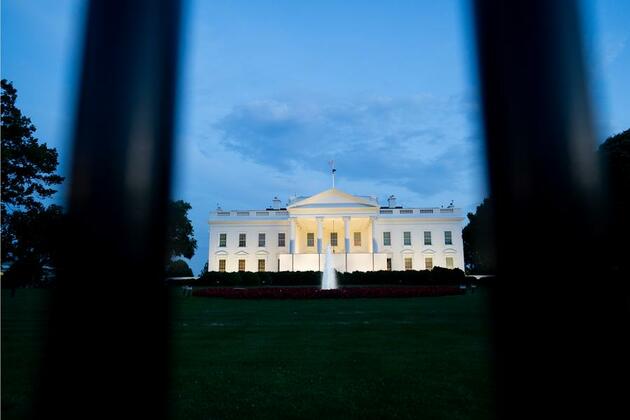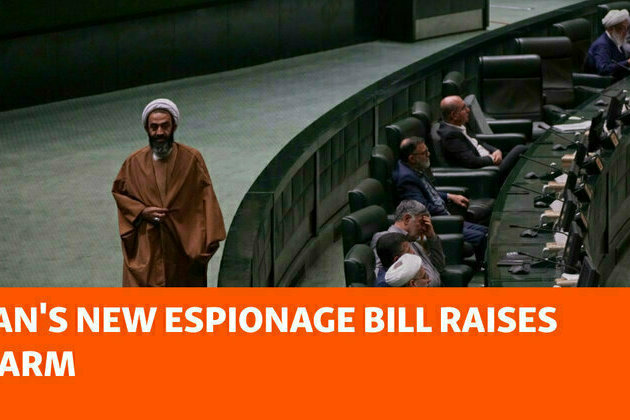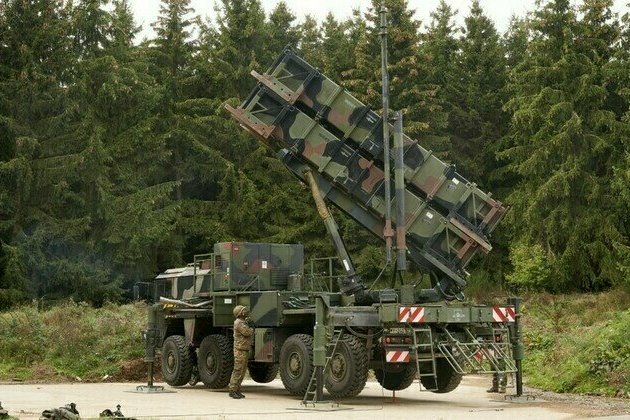Russias neighbours will always fear it and thats normal
RT.com
04 Jul 2025, 16:12 GMT+10
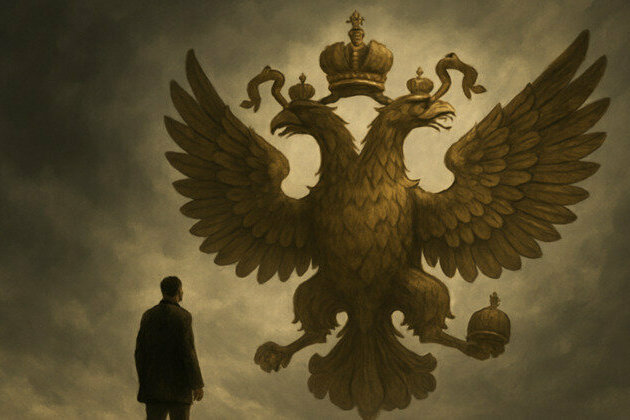
Azerbaijans worries reflect Russias natural role in the region
Azerbaijan has switched to "restless neighbour" mode once again, reminding us of an enduring reality: countries living within Russia's sphere of influence will always fear Russia. Our relations with post-Soviet neighbours will continue to be periodically marred by misunderstandings, as is happening with Baku today.
Russia's borders remain largely transparent and porous, with the exception of our boundary with one of the friendliest great powers of the modern era - China. Across all other frontiers, the legacy of empire persists, making it pointless to distinguish fully between internal and foreign policy.
Whether it takes the form of a military presence, allied obligations, cultural and linguistic ties, or sheer dependence in foreign policy, Russia's neighbours - from the Baltic states to Poland and Finland - remain in its sphere of influence. These relationships are the product of centuries of history. No matter how they struggle to escape, they rarely succeed, and even if they do, Russia continues to occupy a central place in their imagination.
The Baltic states and Finland have cut themselves off from Russia, yet they cannot truly live without thinking about it. Nothing changes in substance. This is the inescapable consequence of historical ties, and although it may bring trouble and anxiety, it is also a given.
Fear, sadly, is the natural response. We must understand that Russia's neighbours will always fear it, and that this fear cannot be eliminated. Rather, it must be accounted for and managed through realistic politics. Even where relations appear stable, as with the Central Asian republics, fears about Russian intentions linger.
A few years ago, at the height of the pandemic, I conducted in-depth interviews in nearly all former Soviet countries (excluding Ukraine and Turkmenistan). Among political figures and academics, even the most intelligent ones, anxiety about Russia was palpable, either directly or indirectly.
Russia knows that solving regional disputes by force is usually against its own interests. But it cannot assume neighbours see Moscow in the same way. Other states inevitably judge Russia by its history, its scale, and its power - and a great power can always be tempted by simple solutions.
In today's volatile global environment, confidence in the future is a privilege enjoyed by very few. States like Russia, the USA, China, or India, thanks to their power, can be confident. Others, like Iceland or Liechtenstein, are too small to count. Even tiny Luxembourg must look over its shoulder at Germany and France. International law is no real guarantee. Major military powers, including Russia, do not grant indefinite security guarantees to countries on their doorstep.
Geography is the second key factor. A state's position on the map shapes its destiny and its foreign policy. It is naive to suggest Russia should treat its neighbours as the United States treats Mexico or Canada. The American neighbours are effectively marooned on an island far from the world's main conflicts. They cannot look elsewhere for help in a dispute with the strongest power on earth, so they remain cautious.
By contrast, Russia's neighbours have open borders in many directions and constant opportunities to hedge their positions. It is only natural they look for friends elsewhere to calm their fears. This is why Turkey is active in the South Caucasus, and, more discreetly, in Central Asia. The former Soviet republics see Turkish partnership as a safeguard, even though no one truly believes Ankara can match Russia's influence. Turkey lacks the financial means and strategic independence to replace Russia. But having Ankara nearby is useful leverage in dealings with Moscow - the same way some former Soviet republics use engagement with BRICS to negotiate with the West.
This produces a dense and complicated web of relationships, where diplomats must do most of the heavy lifting. Nothing is simple or easy.
For Russia, the shared geography and deep historical connections mean it cannot view its neighbours like any other states on the planet. Borders on the continent cannot be made impenetrable unless a country has ironclad internal controls, like China or North Korea. Russia's other neighbours are not built that way. They prefer openness with Russia, no matter the periodic tension.
Russia's own identity also prevents a total break from its former Soviet neighbours. Russia is a multi-ethnic, multi-faith society. Its unity is built on cooperation among many groups, not rigid exclusion. A hard border with neighbours would inevitably lead to attempts to draw boundaries inside Russia itself - a dangerous path for a country whose main ethnic group must remain integrated and secure in a world full of threats.
Historically, Russian rulers from the 15th century onward recruited people from the Golden Horde - their former enemies - to shore up manpower in a land of poor resources and harsh conditions. That pragmatic tradition continues today. Russia cannot cut itself off from the diasporas that grew out of centuries of common history. Policing them is the job of law enforcement, but no fence can change that legacy.
This explains why Russia's relations with its neighbours will always carry an undercurrent of anxiety. It is happening with Azerbaijan today and will happen again elsewhere. Russia's patience is not infinite, but its statecraft is consistent, rooted in a realistic appreciation of its history, its geography, and its place in the modern world.
Great powers must understand their neighbours' fears but not surrender to them. Russia should neither abandon its influence nor expect to be loved for it. Instead, it should manage the consequences of its size and power, and treat neighbourly fear as part of the price of being a giant.
That is the task before Russian diplomacy - and a test of its ability to balance strength with responsibility in an ever more unstable world.
(RT.com)
 Share
Share
 Tweet
Tweet
 Share
Share
 Flip
Flip
 Email
Email
Watch latest videos
Subscribe and Follow
Get a daily dose of Greek Herald news through our daily email, its complimentary and keeps you fully up to date with world and business news as well.
News RELEASES
Publish news of your business, community or sports group, personnel appointments, major event and more by submitting a news release to Greek Herald.
More InformationInternational Business
SectionOver 60 companies named in UN report on Israel-Gaza conflict
GENEVA, Switzerland: A new United Nations report alleges that dozens of global corporations are profiting from and helping sustain...
Persson family steps up H&M share purchases, sparks buyout talk
LONDON/STOCKHOLM: The Persson family is ramping up its investment in the H&M fashion empire, fueling renewed speculation about a potential...
Shell rejects claim of early merger talks with BP
LONDON, U.K.: British oil giant Shell has denied reports that it is in talks to acquire rival oil company BP. The Wall Street Journal...
Trump-backed crypto project gets $100 million boost from UAE fund
LONDON, U.K.: A little-known investment fund based in the United Arab Emirates has emerged as the most prominent public backer of U.S....
Australian PM rejects US pressure to ease biosecurity rules
SYDNEY, Australia: Australia will not ease its strict biosecurity rules during trade talks with the United States, Prime Minister Anthony...
Explainer: Who will pay the price for Trump's "big, beautiful bill?"
Critics have slammed the One Big Beautiful Bill Act for its skewed distribution of benefits, tilting toward wealthier groups. WASHINGTON,...
Mediterranean
SectionTurkey, France battle wildfires amid early Europe heatwave
ISTANBUL/PARIS/BRUSSELS: As searing temperatures blanket much of Europe, wildfires are erupting and evacuation orders are being issued...
Apple allows outside payment links under EU pressure
SAN FRANCISCO, California: Under pressure from European regulators, Apple has revamped its App Store policies in the EU, introducing...
Russias neighbours will always fear it and thats normal
Azerbaijans worries reflect Russias natural role in the region Azerbaijan has switched to restless neighbour mode once again, reminding...
Fears Of More Executions As Iran's New Espionage Bill Raises Alarm
Welcome back to the Farda Briefing, an RFE/RL newsletter that tracks the key issues in Iran and explains why they matter. I'm RFE/RL...
Germany looking to secretly buy US arms for Ukraine Bild
The freeze in deliveries of some American weapons to Kiev is causing alarm in Berlin, the paper has reported Germany wants to agree...
"PM Modi is receiving honours because country improved relations with everyone in last 70-75 years": Pawan Khera
New Delhi [India], July 4 (ANI): Congress leader Pawan Khera on Friday aimed Prime Minister Narendra Modi over his recent visit to...

